
Grado Hemp: Two-minute review
The Reference Series Hemp headphones started out as a limited edition – but thanks to popular opinion, Grado has decided to make them a permanent part of its catalog. How likely are the Grado Hemp to feature in our best wired headphones buying guide? Very, with just a few caveats.
In many ways – certainly aesthetic – it’s Grado business as usual. Which isn't all good news, exactly, because it means these headphones are nothing special where perceived value is concerned, are far from luxurious as objects, and become less than comfortable more quickly than, say, the Sennheiser HD 660S2 they’re likely to face off against on most people’s shortlists.
Happily, it’s also business as usual where sound quality is concerned. The combination of the open-backed configuration, along with the acoustic talents of the maple-and-hemp construction of the driver housing, means these headphones sound spacious, detailed and thoroughly engaging. So much so, in fact, that you’ll almost certainly find they’re becoming just slightly uncomfortable before you’re really ready to stop listening to them.
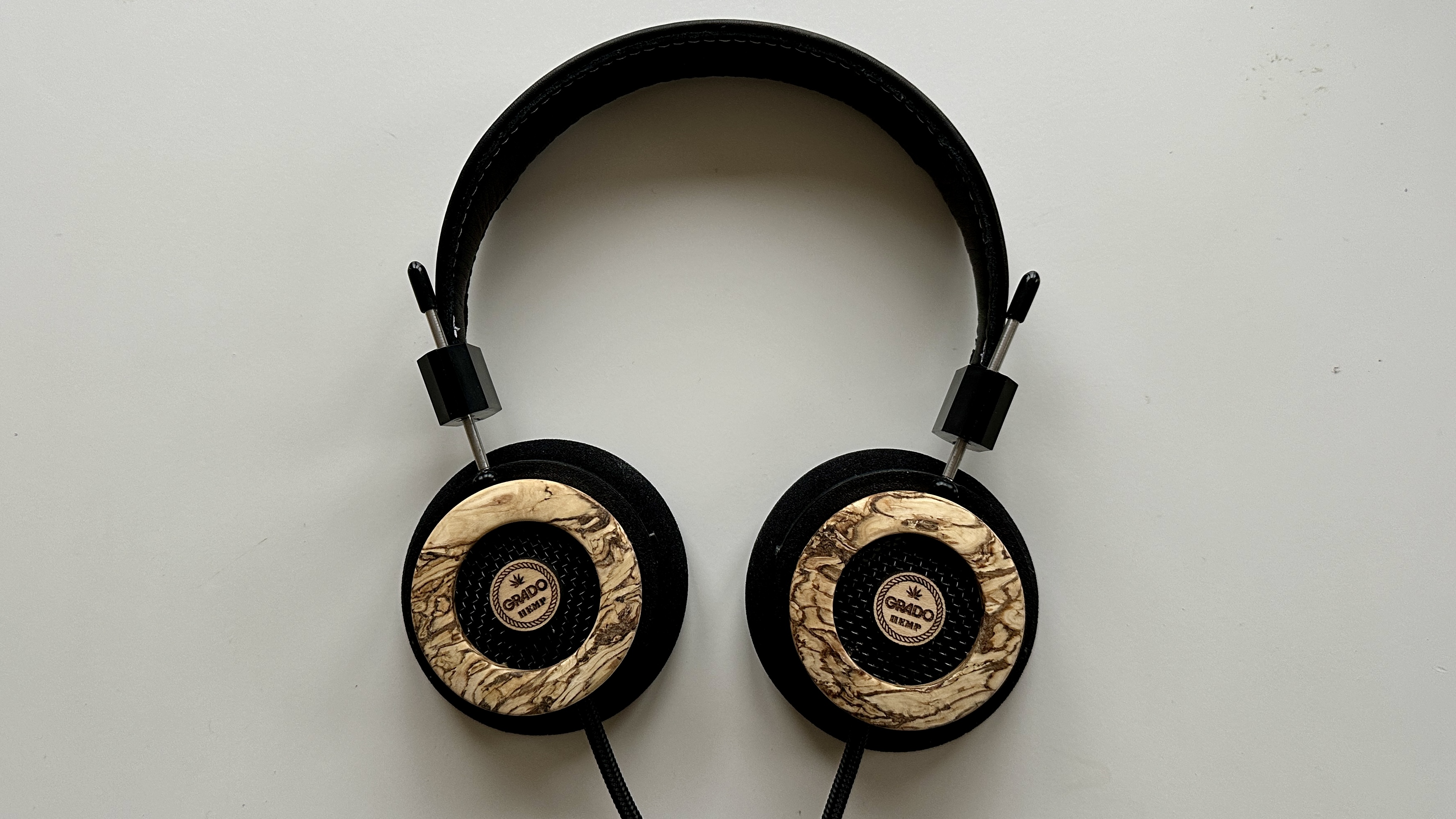
Grado Hemp review: Price & release date
- Release date: February 1, 2024
- Price: $479 / £479 / AU$799
The Grado Reference Series Hemp wired open-backed over-ear headphones are available now – originally this model saw the light of day back in 2020, but then it was a limited edition and now it isn’t. In America, the price is a pun-tastic $420, while in the UK the headphones cost £479 and in Australia they’re AU$799.
There isn’t really space here to list all the very many pairs of alternative over-ear headphones this sort of money will buy. But direct, hard-wired open-backed rivals are thin on the ground (although the FiiO FT3 is one option), and those partially constructed from a semi-illegal botanical species are thinner still…
Grado Hemp review: Specs
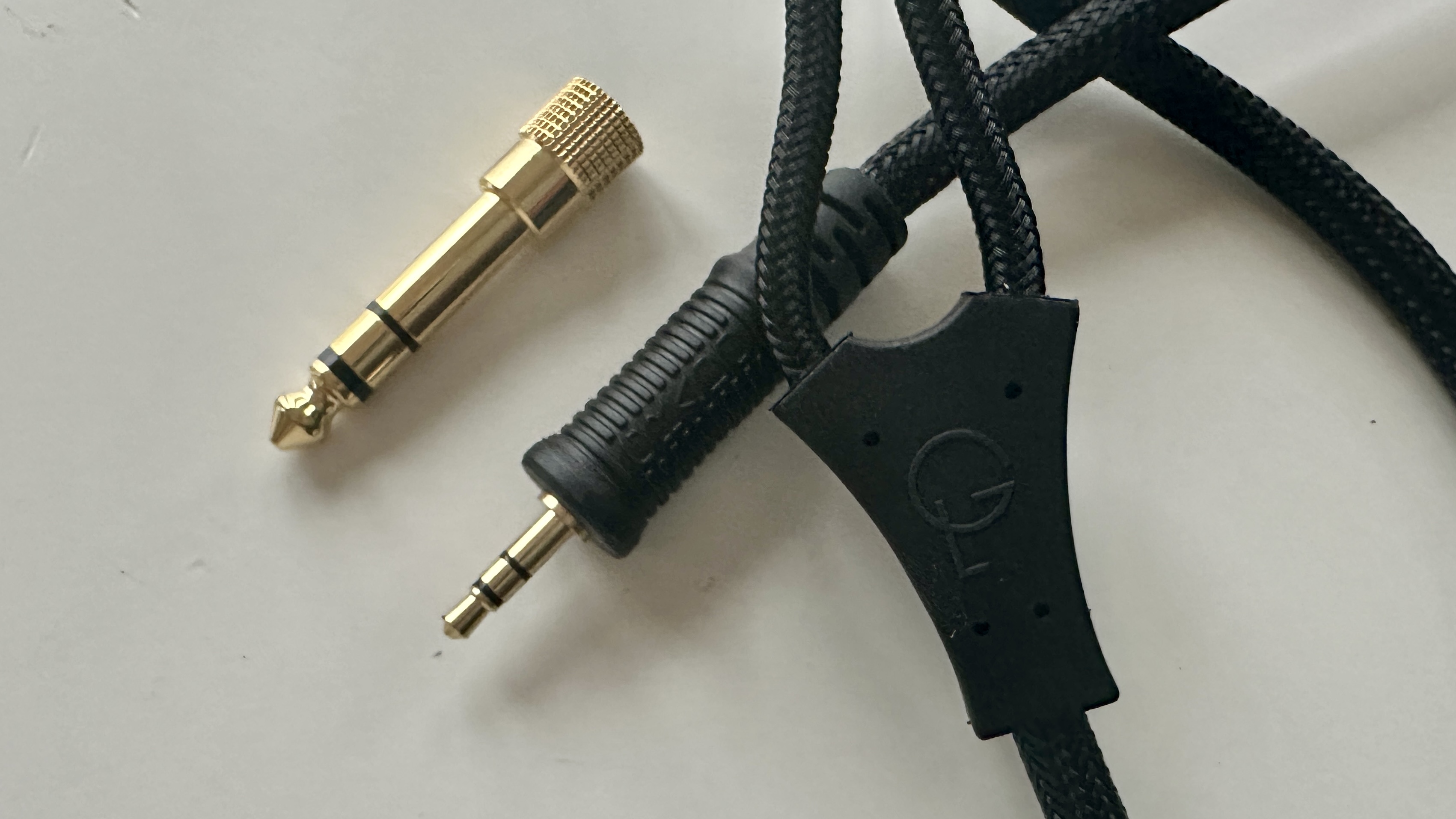
Grado Hemp review: Features
- 44mm dynamic drivers
- 13Hz - 28kHz frequency response
- Chunky 177cm cable
There’s not much you need from a pair of passive headphones when it comes to ‘features’, is there? The Grado have the essentials: properly suspended, nicely isolated 44mm dynamic drivers delivering a claimed frequency response of 13Hz - 28kHz, and that just about covers it.
Each earcup is wired using the familiar eight-conductor cable Grado has favored for a while now – and here, just as in every other application, it’s almost wilfully eager to twist in on itself and heroically resistant to straightening. At least Grado has seen sense and fitted a 3.5mm termination with a 6.33mm adapter supplied – back in the day, the company would terminate with a 6.3mm jack and then provide a huge, unwieldy 6.3mm/3.5mm adapter. So progress has definitely been made where that particular feature is concerned…
- Features score: 5/5
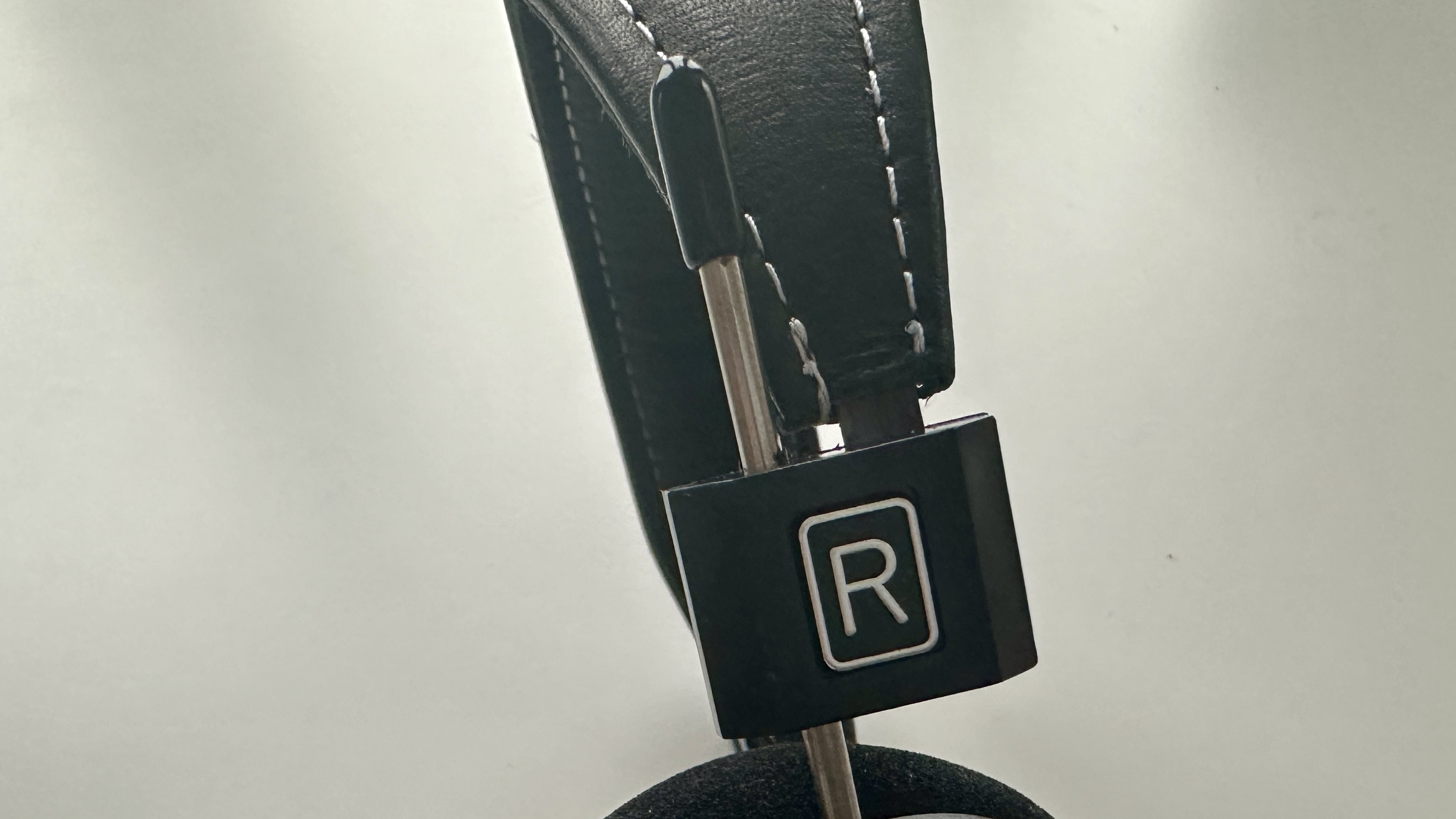
Grado Hemp review: Sound quality
- Open, organised and expansive presentation
- Nicely balanced and detailed sound
- Straightforwardly enjoyable to listen to
Buying open-backed, hard-wired headphones strongly suggests you take your listening pretty seriously – after all, you haven’t hit on a pair of Grado Reference Series Hemp headphones for their convenience. So it seems reasonable to assume you’ll plug them into a worthwhile source of music, rather than straight into the headphone socket of a laptop or smartphone.
And sure enough, attach the Hemp to a half-decent headphone amplifier, feed in some digital audio content of reasonable resolution (a 24bit/96kHz FLAC file of Nick Drake’s Which Will, for instance, a 16bit/44.1kHz FLAC copy of Petra Haden’s version of I Can See For Miles or a 24bit/192kHz FLAC file of Astrud Gilberto’s Chup Chup I Got Away) and the fact they neither look nor feel like $480-worth of headphones becomes a moot point. Because they sound like it, and then some.
The soundstage they’re capable of creating, for example, is spacious, well-organised and, most of all, big. So big, in fact, that even if you choose to listen to a full symphony orchestra gearing up for a full assault, there’s more than enough room available for each individual instrument to enjoy a little space in which to do its thing without fear of being trampled over by any other. The layout is explicit, and the distance in the front/back and left/right planes is significant. Switch to a small-scale, guitar-and-voice recording, though, and the Hemp makes it sound unified, intimate and direct. As far as creating a big picture goes, these Grado are vivid and confident.
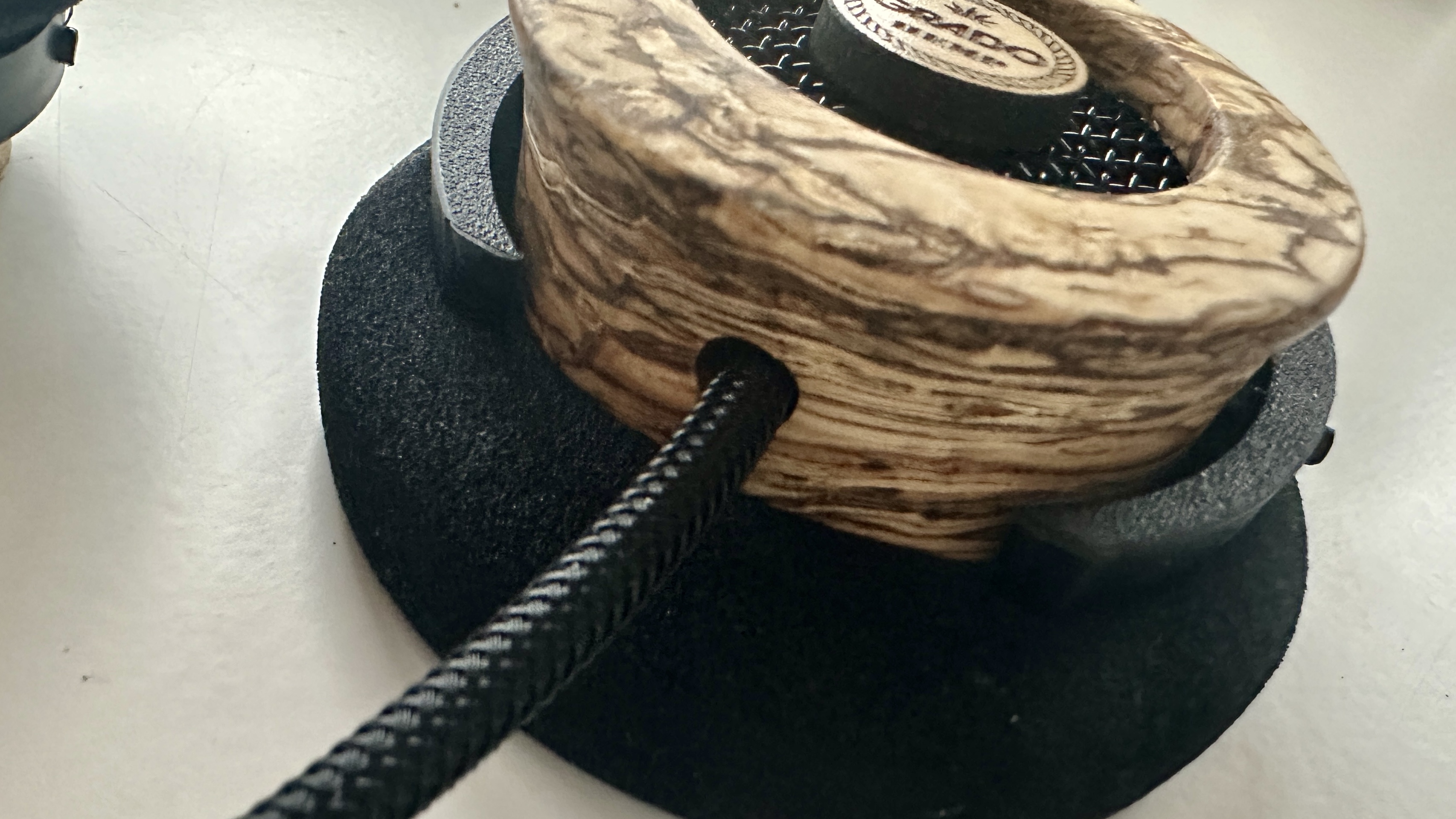
Detail levels are high, across the board – the bottom of the frequency range is just as information-rich, varied and articulate as the midrange and the top end. At every stage, the Grado are able to identify and contextualise even the most minor events in a recording, as well as keeping a close eye on the bigger picture. It’s able to amalgamate every strand into a singular event with a strong sense of ‘performance’, and the integration of the entire frequency range is smooth (although just fractionally midrange-forward in the established Grado manner). This might seem to be a given, on the basis that the Hemp are producing the whole frequency from a single driver per earcup, but I’ve heard enough similarly specified headphones that simply can’t manage it to know it’s not good to make assumptions.
Control of the bottom end is good, which means rhythms are handled with assurance – the Grado’s overall sonic signature is one of momentum and engagement, rather than dry analysis. Oh, they can peer deep into a recording and bring back all the minutiae – but that’s not where they’re at their most effective. It’s their sense of energy and drive, well-supervised attack and simple musicality – that’s where their fundamental talents lie.
Big dynamic shafts are handled without alarms, and with just as much positivity as the low-level dynamic variations that are apparent in a solo instrument or unaccompanied voice(s) as in the Petra Haden recording. There’s plenty of punch and attack when it’s called for, but the Hemp are just as capable of soothing as they are invigorating.
- Sound quality score: 5/5
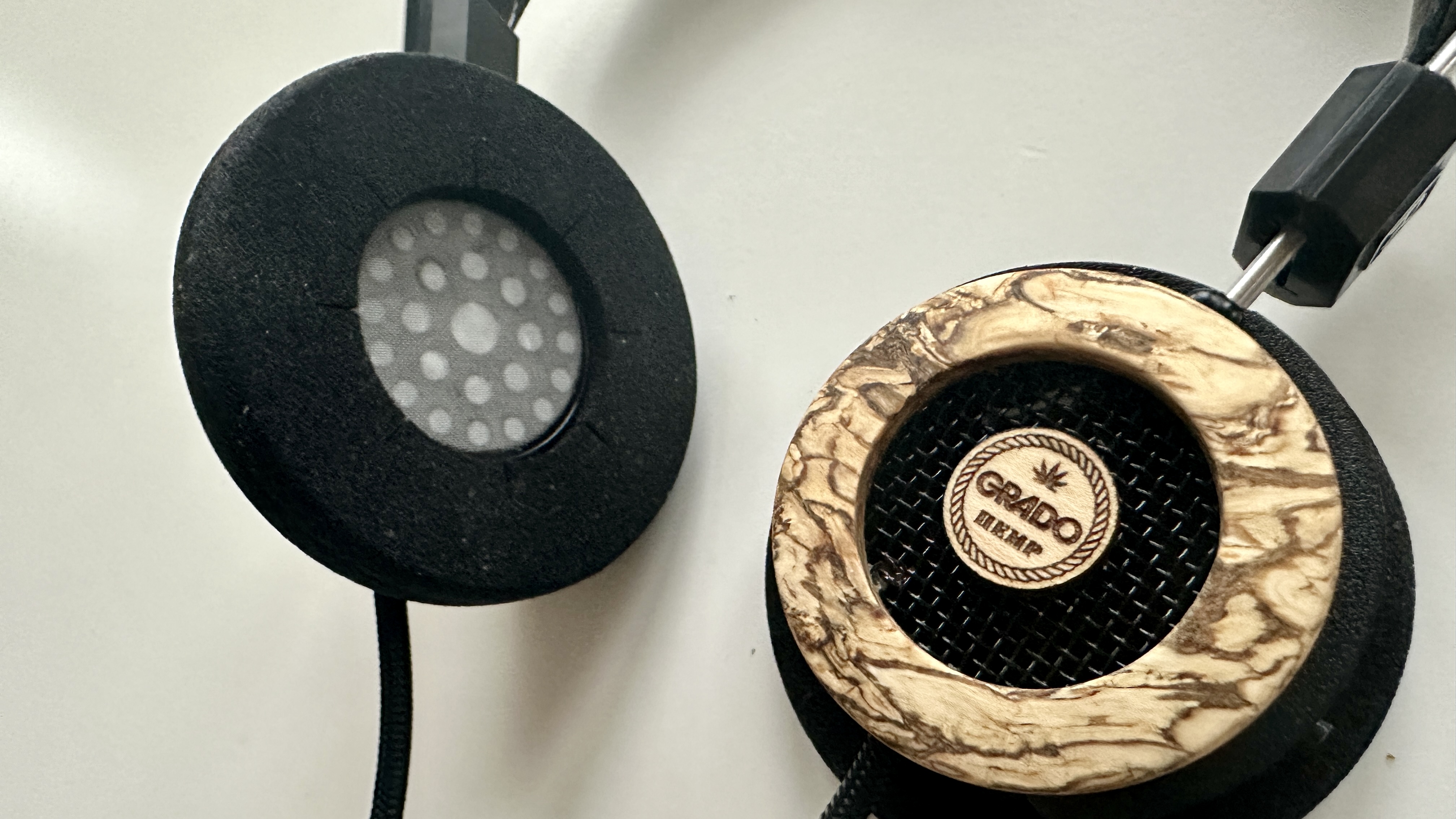
Grado Hemp review: Design
- Hemp/maple driver housing
- Leather headband
- Foam ear pads
Despite the fact that every pair of on-ear headphones is fundamentally the same when it comes to ‘design’, the Reference Series Hemp could only be a Grado product. The established design cues are all here.
Thin metal headband, modestly padded and covered with stretched leather? Check. Prosaic ‘friction pole’ headband adjustment mechanism? Check. Metal mesh covering the rear of the driver enclosure, ordinary-feeling foam forming the ear pads, a rudimentary yoke allowing just a degree of ear cup movement? Check, check and check again. Grado hit upon these design features a while back, and quite obviously sees no reason to mess with them.
No pair of headphones stays comfortable indefinitely. At some point during a listening session you’ll become aware of heat, or fatigue, or both, somewhere or other – but the design and execution of the Reference Series Hemp means that time will come a little sooner than with some alternative designs.
- Design score: 4/5
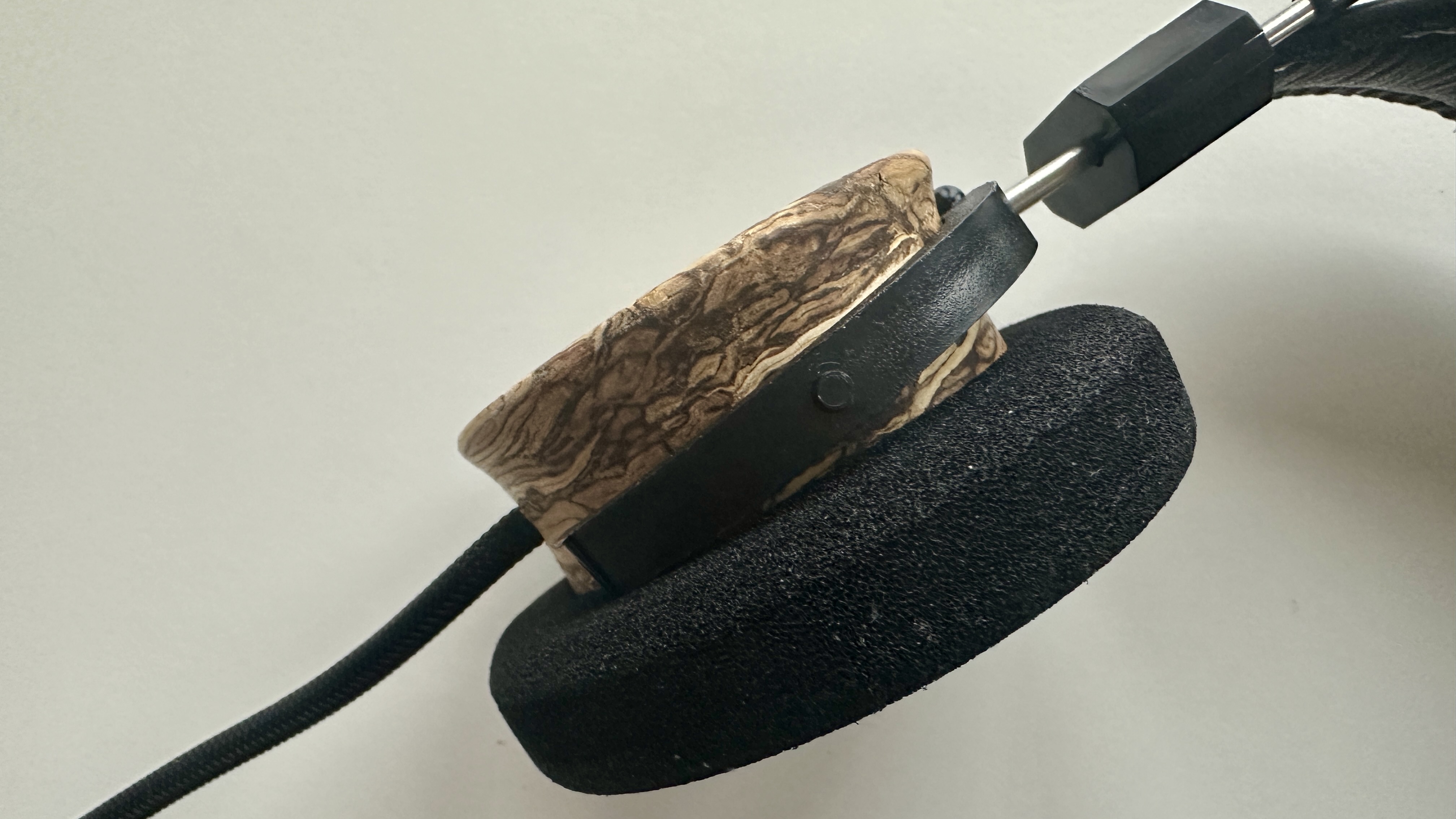
Grado Hemp review: Value
- Unremarkable in look and feel
- Perceived value is not all that high
- Excellent sound quality at the money
You can look at this one of two ways. The first way says that the Reference Series Hemp are fundamentally unglamorous, and in no way look or feel like they cost as much money as they cost. The second way says that a combination of sonic talents such as those exhibited by these headphones justifies the asking price all day long. You will very much make your own mind up…
- Value score: 4/5
Should I buy the Grado Hemp?
Buy them if...
Don't buy them if...

Grado Hemp review: Also consider
How I tested the Grado Hemp
- Used with various sources
- Tested for over a week
- Many different types of music played
Headphone amps of various types, music from vinyl records and hi-res digital audio files (and plenty of them) plus a long, hard listen is basically how I tested the Grado Reference Series Hemp.
This is how I was able to establish they like good sources of music better than average ones (no surprise there), they couldn’t care less about the sort of music you like to listen to (which is good news), and they get a little uncomfortable once you’re hours deep into a listening session (which is slightly less good news).
It also didn't take me long to establish that the noise they leak is an irritation to anyone who might be in the vicinity…
- First reviewed: March 2024
- Read more about how we test







